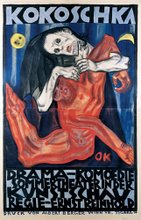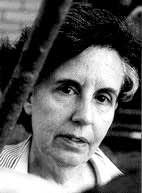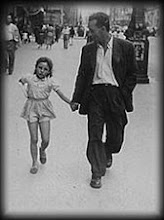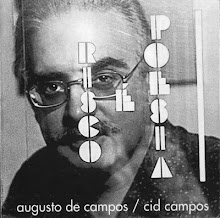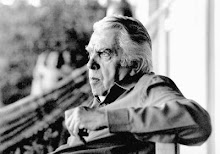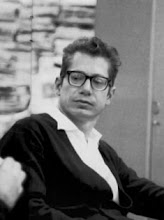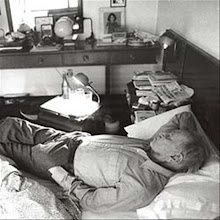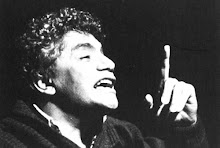The law in accordance with which a continually increasing quantity of the means of production can, thanks to the advance in the productivity of social labor, be set in motion by a progressively diminishing expenditure of human energy-this law, in a capitalist society (where the worker does not make use of the means of production, but where the means of production make use of the worker), undergoes a complete inversion, and is expressed as follows: the higher the productivity of labor, the greater is the pressure of the workers on the means of employment; and the more precarious, therefore, becomes their condition of existence, namely the sale of their own labor power for the increasing nf another’s wealth, or to promote the self-expansion of capital. Under capitalism, likewise, the fact that the means of production and the productivity of labor grow more rapidly than does the productive population, secures expression in an inverse way, namely that the working population always grows more quickly than capital’s need for self-expansion.
All the methods for the production of surplus value are at the same time methods of accumulation; and, conversely, every extension of accumulation becomes a means for the development of the methods of production. The result is that, in proportion as capital accumulates, the condition of the worker, be his wages high or low, necessarily grows worse. Thanks to the working of this law, poverty grows as the accumulation of capital grows. The accumulation of wealth at one pole of society involves a simultaneous accumulation of poverty, labor torment, slavery, ignorance, brutalization, and moral degradation, at the opposite pole-where dwells the class that produces its own product in the form of capital.
Political economists have in various ways draw attention to this inherent contradiction in capitalist accumulation, although in their disquisitions they confound it with phenomena which, though to some extent analogous, are essentially distinct - belonging as they do to pre-capitalist methods of production.
Ortes, the Venetian monk, who was one of the greatest economists of the eighteenth century, regards this contradictory character of capitalist production as a general natural law of social wealth. He writes:
"In the economy of a nation, good and evil always balance each other; abundance of wealth for some is invariably counterpoised by the lack of wealth for others. Great wealth for some is ever accompanied by an absolute privation of the necessaries of life for a much larger number of persons. The wealth of a nation corresponds with its population, and its poverty corresponds with its wealth. Diligence in some compels idleness in others. The poor and the idle are a necessary consequence of the rich and the active", and so on.
About ten years after Ortes, Townsend, the High Church parson, writing with characteristic brutality, glorified poverty as the necessary condition of wealth. Legal constraint [to labor] is attended with too much trouble, violence, and noise; whereas hunger is not only a peaceable, silent, unremitted pressure, but, as the most natural motive to industry and labor, it calls forth the most powerful exertions". Everything, therefore, depends upon making hunger permanent in the ranks of the working class; and for this, according to Townsend, the principle of population, especially active among the poor, provides. "It seems to be a law of nature that the poor should be to a certain degree improvident" [so improvidente as to be born without a silver spoon in the mouth], "that there may always be some to fulfill the most servile, the most sordid, and the most ignoble offices in the community. The stock of human happiness is thereby much increased, whilst the more delicate are not only relieved from drudgery. But arc left at liberty w ithout interruption to pursue those callings which are suited to their various dispositions".
Finally, hear Destutt de Tracy, the cold-blooded bourgeois doctrinaire, who bluntly tells us the truth: "In poor nations the common people are comfortable; in rich nations they are generally poor".
Karl Marx
1818 - 1883


![[...]](https://blogger.googleusercontent.com/img/b/R29vZ2xl/AVvXsEjeNC2Kyxd34r2LuofHe9-vdXHeHwG3_2NhVmIOTlK2moU0Q4R7taMlS8iMmQgEl1-NdaRsPrLdREzfQZYKfUgjslwLZUZe67dAfFBREu-YRx6WGX-vAUt5eJT4_-lFwT4dGzGCQQ/s220/11798115_858304687558226_1857652538_n.jpg)
